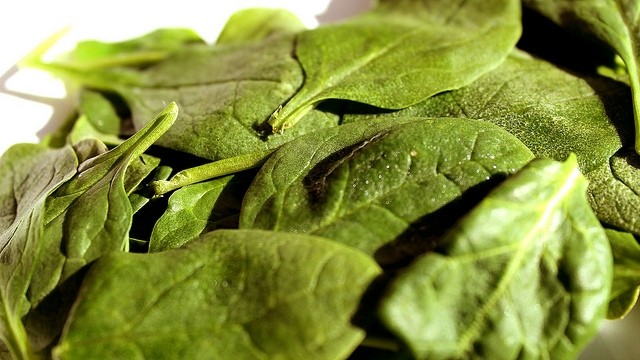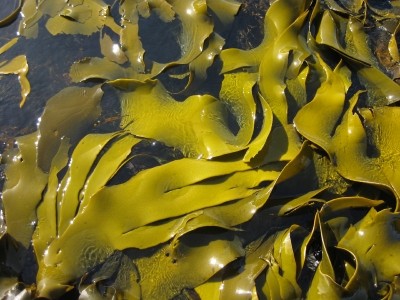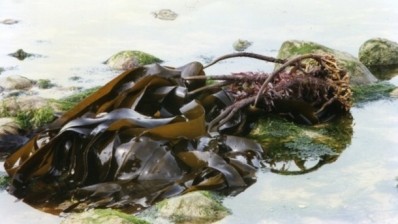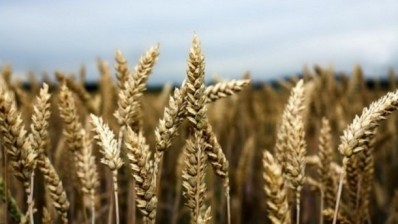Cutting your losses: Seaweed extract improves fresh spinach storage quality

“The link between the application of ANE and improvement in post-harvest shelf life and nutritional quality is significant. Agriculture and the food industry can adopt this technology to improve quality and nutrient content of fruit and vegetables,” Balakrishnan Prithiviraj, associate professor (marine bioproducts) at the Department of Sciences at Dalhousie University, Truro, Canada, told Foodnavigator.
The brown alga ANE is a widely researched seaweed species currently used as a bio-stimulant to improve plant growth and impart stress tolerance. Professor Prithiviraj suggested that to realise the additional benefit of improving shelf life and enhancing nutritional value as reported in the studies conducted by his laboratory, producers may have to adopt additional ANE application before harvest.
“For example, in the spinach study we found application of ANE 1-2 weeks prior to harvest had a desirable outcome,” he said.
Study details
In this, the latest study, researchers investigated the effect of pre-harvest root treatment of spinach with ANE on post-harvest quality of fresh cut spinach over a 35-day storage period. The treatment significantly reduced the fresh weight loss and visible deterioration – two major concerns in the storage of leafy vegetables. Leaves from the untreated plant turned yellow and wilted early during storage compared to the leaves from the ANE treated plant.
Spinach leaves contain a high concentration of antioxidative phytochemicals. Changes in leaf colour have been shown to be related to senescence (slow cell death), which is largely regulated by reactive oxygen species. Increased lipid peroxidation is one of the major characteristics of leaf senescence. In this latest study, ANE treatment was found to reduce lipid peroxidation, suggesting that ANE reduced oxidative stress in spinach.
“Oxidative stress associated post-harvest senescence includes repression of enzyme activities, loss of pigments and disintegration of membranes and is often manifested as shortened self life and decline of nutritional quality,” wrote the researchers.
“The results show that pre-harvest ANE-application through root drench, especially at 1.0g L-1, enhanced post-harvest storage quality of spinach leaves. This suggests that the organic and inorganic components present in ANE might have induced certain systemic physiological changes in the plant.”
Beyond spinach
Other fruit and vegetables have also been found to benefit from treatment with ANE. For example, in one study, the deterioration of water melons and nectarines was delayed and their shelf-life significantly prolonged, and Prof. Prithiviraj said his team would continue to study the effect of ANE application on a variety of fruit and vegetables.
“Also, we are interested in studying how the change in the nutrient components of fruits and vegetables affect the quality of products made from them: for example, does an increase in flavonoids in grapes improve the taste profile of wine? Can ANE application affect the flavour characteristics of coffee bean?”
Countering effects of climate change
The researchers even believe that ANE could offer an antidote to the detrimental effects rising levels of CO2 are having on crop quality, as documented in recent field trials.
“Climate change is already causing significant impact on crop production and productivity. This negative effect is largely due to drought, reduced availability of good quality water for irrigation, soil salinisation and temperature extremes. ANE imparts stress tolerance in plants, allowing them to grow under suboptimal conditions and at the same time improves the quality and nutritional content of agricultural and horticultural crops.”
Source: Scientia Horticulturae
Published: Volume 170, 7 May 2014, Pages 70–74
“Pre-harvest treatment of spinach with Ascophyllum nodosum extract improves post-harvest storage and quality”
Authors: Di Fana, Saveetha Kandasamya, D. Mark Hodges, Alan T. Critchley, Balakrishnan Prithiviraja
























